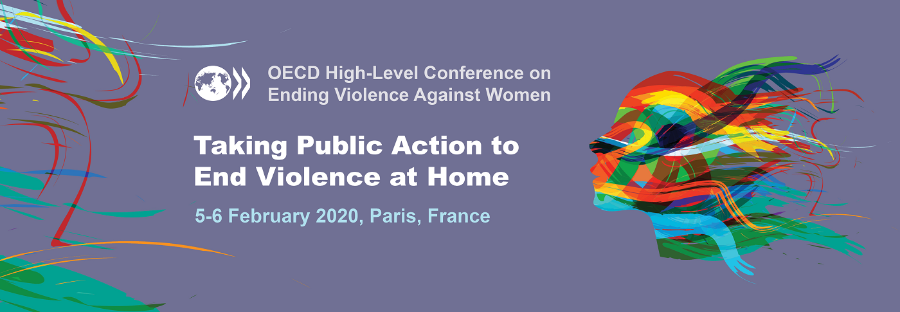Social and welfare issues
OECD High-Level Conference on Ending Violence Against Women

|
Violence against women remains a global pandemic. Worldwide, more than one out of three women have experienced physical and/or sexual intimate partner violence or non-partner sexual violence in their lifetime. OECD Ministers increasingly recognize that violence against women is a crisis in their countries. The OECD Gender Equality Questionnaire illustrated that governments prioritise this issue as a crucial front in the battle for gender equality: 21 of the 37 governments adhering to the OECD Gender Recommendation listed violence against women as one of the three most urgent gender equality issues in their country. And the OECD Public Governance Committee has called on the OECD to support countries in providing an integrated, cross-Ministerial and state-wide response towards violence against women through its Gender Mainstreaming Strategy and Action Plan. Join OECD Ministers and other global leaders at the OECD in Paris on 5-6 February 2020 to discuss how to prevent, address, and eradicate violence against women. Help us secure a commitment from OECD governments to end violence against women. The time to act is now. |
KEY DOCUMENTs
- NEW: Conference proceedings (June 2020)
- Opening Remarks by OECD Secreatry General Angel Gurría
- Issues notes:
- Call to justice: Preventing and ending intimate partner violence;
- Intimate partner violence: A manifestation of harmful masculinities;
- Reporting and Measuring Intimate Partner Violence;
- Integrating services to support survivors of violence; and
- Making violence against women a whole-of-government priority
- Call to Action for the OECD: Taking Public Action to End Violence at Home
// Appel à l’action pour l’OCDE : Mobiliser l’action publique contre la violence domestique
Ambassadors called upon the OECD to build on its expertise and scale up its engagement and activities to end intimate partner violence (IPV). The purpose of the proposed work programme is to help countries achieve the following goals:
- Governments should recommit to collect better data, and more regularly, as countries face serious challenges in gathering administrative and survey data to assess the incidence of violence regularly.
- Given the multifaceted challenges presented by IPV, governments should adopt a whole-of-government approach to end IPV.
- At the service delivery level, governments and other stakeholders should better coordinate to provide the range of complementary services that victims need to recover from violence and lead healthy lives.
- Governments must address the bottlenecks in justice pathways that continue to block survivors’ access to justice.
- Societies, governments, and other stakeholders need to push back on the social acceptance of such violence. The socio-economic and cultural environment in which VAW thrives must change.
Live webcast
|
Day 1 |
Day 2 |
Contacts
For more information please contact: vaw@oecd.org
Related Documents